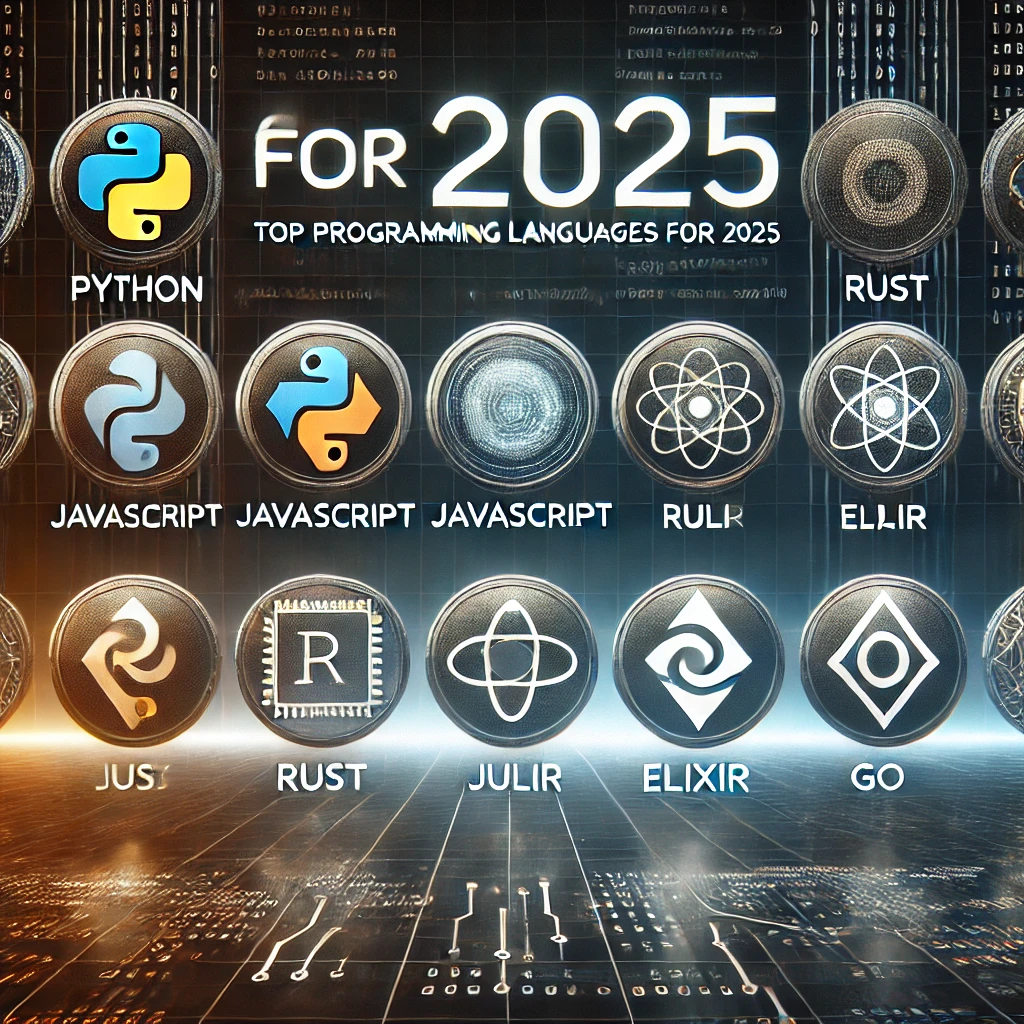
Top Programming Languages to Learn in 2025 and Their Growing Demand
As 2024 comes to a close, the tech world is abuzz with predictions for the future of programming. The demand for software developers is ever-growing, and staying ahead of the curve means mastering the languages that will dominate the industry in 2025. Whether you're looking to advance your career, switch to a new field, or start learning programming from scratch, understanding the key players in the programming landscape is essential.
In this blog, we'll dive into the top programming languages you should consider learning in 2025, with a mix of established giants and up-and-coming stars. Let's explore the languages that are shaping the future.
1. Python
Python’s versatility and simplicity have made it a long-standing favorite among developers, and it shows no signs of slowing down in 2025. It’s the go-to language for data science, machine learning, artificial intelligence (AI), and web development. Python’s extensive libraries and active community support ensure that its dominance in areas like AI, data analysis, and automation will continue to grow.
Why learn Python in 2025?
With AI and data-driven applications expanding rapidly, Python remains an essential language for anyone working in tech or planning to enter fields like AI, machine learning, or data science. Its clear syntax and readability also make it an excellent choice for beginners.
2. JavaScript
JavaScript continues to be the backbone of web development, providing the building blocks for interactive websites and applications. With the rise of powerful frameworks like React, Angular, and Vue, JavaScript is indispensable for front-end development. Its server-side counterpart, Node.js, is equally valuable for building scalable back-end systems.
Why learn JavaScript in 2025?
As long as the web remains central to how we interact with technology, JavaScript will be in demand. Full-stack developers who master both client-side and server-side JavaScript will continue to be highly sought after in the job market.
3. Rust
If you're interested in systems programming and building highly reliable, fast software, Rust is a language you’ll want to consider in 2025. Known for its memory safety and high performance, Rust is growing in popularity for systems that require speed and efficiency. This includes web browsers, game engines, and systems software.
Why learn Rust in 2025?
Rust’s strong focus on preventing memory errors makes it a safer alternative to languages like C and C++. As the need for systems-level programming grows in areas like embedded systems and game development, Rust is gaining favor in the developer community.
4. Julia
Julia is a rising star, particularly in the fields of data science, numerical computing, and machine learning. Designed for high-performance computing, Julia excels in tasks that require heavy mathematical computation. It combines the simplicity of Python with the speed of languages like C, making it a valuable tool for researchers, engineers, and data scientists.
Why learn Julia in 2025?
With more organizations turning to data-intensive applications, Julia’s ability to handle complex computations quickly and efficiently makes it a language to watch in 2025. If you work in scientific research, finance, or any field where data plays a central role, Julia will be a game-changer.
5. Go (Golang)
Created by Google, Go is known for its simplicity and speed. It's designed for building scalable applications, particularly in the realm of cloud computing, microservices, and DevOps. Go’s efficient memory usage and performance make it an ideal language for modern software engineering needs.
Why learn Go in 2025?
With cloud computing continuing to rise and microservices architecture becoming more popular, Go is a must-learn for developers in these fields. Its growing popularity for large-scale applications makes it a top choice for back-end and cloud-native developers.
6. Elixir
Elixir is a functional programming language that is built on the Erlang virtual machine, which is known for its scalability and fault-tolerance. Elixir is particularly well-suited for building distributed systems and real-time applications, which are increasingly important in industries like telecommunications, banking, and e-commerce.
Why learn Elixir in 2025?
As the need for highly available, scalable systems continues to grow, Elixir is becoming a preferred choice for building real-time applications and APIs. If you’re working on projects where uptime and scalability are critical, Elixir is an excellent language to have in your toolkit.
7. Kotlin
While Kotlin has long been the preferred language for Android development, it's gaining traction in other areas, including server-side and web development. Kotlin is fully interoperable with Java, and its concise syntax and modern features make it an attractive option for developers looking for a powerful alternative to Java.
Why learn Kotlin in 2025?
As mobile development continues to grow and Kotlin expands its reach into other areas of software development, learning Kotlin will make you a versatile developer. It's an essential language for Android developers, but its use in other domains is increasing as well.
8. Swift (Server-Side)
Swift is best known as the primary language for iOS development, but its use for server-side programming is on the rise. With its strong performance and clean syntax, Swift is gaining popularity beyond mobile apps, making it an exciting language for full-stack developers.
Why learn Swift in 2025?
If you’re already developing for Apple’s ecosystem or looking to enter iOS development, Swift is an obvious choice. But with the growing demand for server-side Swift, mastering it will give you a competitive edge in full-stack development.
Final Thoughts: Which Language Will You Choose in 2025?
As we move closer to 2025, the programming landscape is filled with both familiar giants and exciting newcomers. Whether you're diving into Python for AI, mastering Rust for systems programming, or exploring Julia for data science, there are plenty of opportunities to future-proof your skills. The key is to stay adaptable and continuously learn languages that align with your career goals and the industry trends.
So, which programming language will you focus on in 2025?
